It’s no secret that a16z is full of avid readers — our winter list included everything from Nike entrepreneur Phil Knight’s memoir and two Hamilton tributes to musings on Russian high finance and internet security alike. Not to be outdone, the summer list below contains a biography of Queen Victoria, double appearances by author Douglas Hofstadter, two books that involve uploading consciousness… and everything in between. Yet there was surprisingly little overlap across the rest of the recommendations. And: the related a16z Podcast connections were made only after the fact!
…from Vishal Amin, corporate development team
Digital Gold: Bitcoin and the Inside Story of the Misfits by Nathaniel Popper. “Cryptocurrency has been gaining meaningful momentum in 2017 and this book clearly articulates the history of bitcoin and how we’ve come to where we are. If you are looking to get your feet wet in crypto, this is an ideal place to start.” [related: a16z Podcast with the author]
…from Katie Baynes, communications team
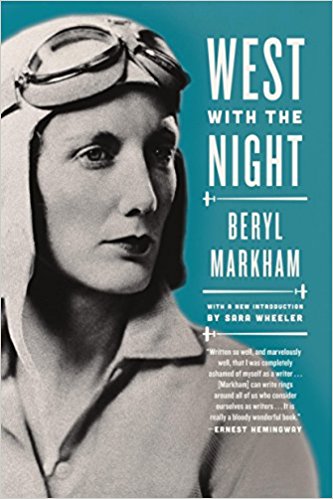 West with the Night by Beryl Markham. “A compelling memoir by a strong-willed pilot who lived in Kenya and was the first woman to fly solo from east to west across the Atlantic. I read this book in a single weekend a few years ago on the recommendation of my then-boyfriend’s mother; now, I’m reading it and writing this from my honeymoon (now married to that then-boyfriend) in Masai Mara… The book is a vivid, flowing story that puts you in the pilot’s seat of a small Avro Avian journeying from Nairobi, across the Ngong Hills in The Great Rift Valley in Kenya, across the plains to the Serengeti in Tanzania, and other stunning landscapes, and onwards into the night. The story tracks the pilot’s journey on medical missions and pleasure flights, and recounts her childhood memories of bush life. There’s lore that the book was actually authored by Hemingway, or by one of Beryl’s husbands, but the controversy was refuted beyond her death. It wasn’t particularly unusual for women to be discredited for their work then; even Karen Blixen, the author of Out of Africa, used the male nom de plume ‘Isak Dinesen’ to publish her legendary work. To me, Markham is a feminist hero — she’s a record-breaking pilot and an award-winning horse trainer with an independent spirit, assertive personality, and compassionate perspective of a fearless romantic. She seemed to possess a strong sense of both place and adventure. There’s one line in particular that resonated with me: ‘It is really this that makes death so hard: curiosity unsatisfied.’”
West with the Night by Beryl Markham. “A compelling memoir by a strong-willed pilot who lived in Kenya and was the first woman to fly solo from east to west across the Atlantic. I read this book in a single weekend a few years ago on the recommendation of my then-boyfriend’s mother; now, I’m reading it and writing this from my honeymoon (now married to that then-boyfriend) in Masai Mara… The book is a vivid, flowing story that puts you in the pilot’s seat of a small Avro Avian journeying from Nairobi, across the Ngong Hills in The Great Rift Valley in Kenya, across the plains to the Serengeti in Tanzania, and other stunning landscapes, and onwards into the night. The story tracks the pilot’s journey on medical missions and pleasure flights, and recounts her childhood memories of bush life. There’s lore that the book was actually authored by Hemingway, or by one of Beryl’s husbands, but the controversy was refuted beyond her death. It wasn’t particularly unusual for women to be discredited for their work then; even Karen Blixen, the author of Out of Africa, used the male nom de plume ‘Isak Dinesen’ to publish her legendary work. To me, Markham is a feminist hero — she’s a record-breaking pilot and an award-winning horse trainer with an independent spirit, assertive personality, and compassionate perspective of a fearless romantic. She seemed to possess a strong sense of both place and adventure. There’s one line in particular that resonated with me: ‘It is really this that makes death so hard: curiosity unsatisfied.’”
…from Lauren Berson, market development team
The Signal and the Noise: Why So Many Predictions Fail — But Some Don’t by Nate Silver. “Silver does a tremendous job teaching folks why the promise of big data has not come to fruition and how wrong we often are when it comes to predictions. One of my favorites quotes is, ‘A little learning is a dangerous thing; / Drink deep, or taste not the Pierian spring.’ But Nate goes beyond just whetting appetite to teaching us, in depth, how and why we are often wrong — and how to think differently.”
…from LeeAnn Caballero, marketing team
The Devil in the White City: Murder, Magic, and Madness at the Fair That Changed America by Erik Larson. “Nonfiction account of the 1893 World’s Fair in Chicago, told in parallel with the true story of a serial killer who used the fair to find his victims. Fascinating, and, at times, hard to believe it’s not a novel!”
Reductionism in Art and Brain Science: Bridging the Two Cultures by Eric Kandel. “A Nobel Prize-winning neuroscientist’s exploration of the complexities of perception and creative expression. The parallels he draws between reductionist theory in neuroscience, and as an influential factor in the evolution of modern art, are fascinating. You won’t look at abstract art the same way again!”
Priceless: How I Went Undercover to Rescue the World’s Stolen Treasures by Robert Wittman. “One of my favorite summer reads — an insider view of the FBI’s Art Crime Team, this memoir chronicles the career of one of its founding members. Amazing!”
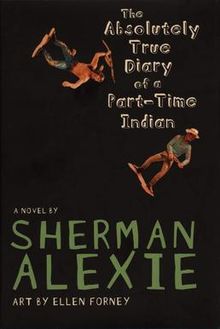 …from Martin Casado, general partner
…from Martin Casado, general partner
Absolutely True Diary of a Part-Time Indian by Sherman Alexie. “A self-deprecating glimpse into reservation life that is sweet, and funny, and poignant. It’s one of those oh-so-rare books that are light and heavy at once, and engages with every page.”
…from Frank Chen, deal team
To Be A Machine: Adventures Among Cyborgs, Utopians, Hackers, and the Futurists Solving the Modest Problem of Death by Mark O’Connell [AND] Six Wakes by Mur Lafferty. “I pair these books although the authors obviously hadn’t planned that pairing. One is a nonfiction romp through the researchers, scientists, and cranks working on technology that can download your brain to a computer; make implants and prosthetics we can control with our minds; and cryogenically freeze our bodies (and, for a discount, just our brains) in hopes that a future medical system can thaw us out and pop us into a new body. The other book is a fictional account of a society that has figured out brain up/downloading and cloning. The story starts with a set of six clones waking up to discover that their prior clones had all been mysteriously murdered, and the arc of the book is figuring out whodunnit? A perfect pairing for your summer reading list.”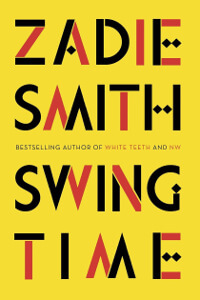
…from Perri Chilton, tech talent team
Swing Time by Zadie Smith. “Simply put, Zadie Smith is incredible.”
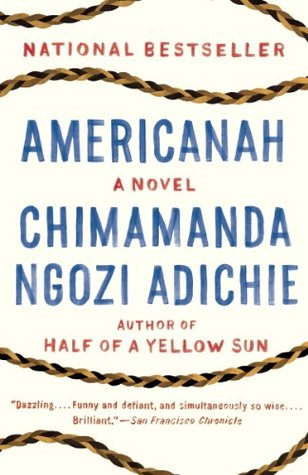 Americanah by Chimamanda Ngozi Adichie. “As we become increasingly interconnected both geographically and online, this novel, although fictional, feels incredibly important. It’s a powerful story about migration, race, assimilation, politics, community, identity. Highly, highly recommend this book — or any of Chimamanda’s other novels!”
Americanah by Chimamanda Ngozi Adichie. “As we become increasingly interconnected both geographically and online, this novel, although fictional, feels incredibly important. It’s a powerful story about migration, race, assimilation, politics, community, identity. Highly, highly recommend this book — or any of Chimamanda’s other novels!”
…from Sonal Chokshi, editorial team
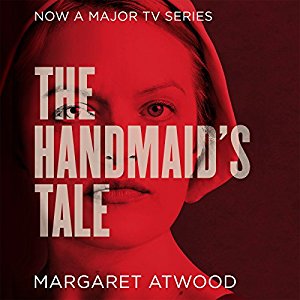 The Handmaid’s Tale by Margaret Atwood. “In an unusual inversion, I saw the recent TV series before properly reading this award-winning book. (Which is something I don’t mind any more given how good entertainment has gotten these days — more like visual literature! And this show really, really, really delivers, in spades). The reason I was compelled to finally and thoroughly read the book is the frightening possibility that this is one of those dystopian futures, as a friend pointed out on Twitter, that seems to be the most plausible, ‘with a path from here to there’… It’s a gripping and important story that applies to much more than you might think — but is also a testament to the power of fiction for creating a sense of immersion and therefore empathy for a world that seems so unlike your own.”
The Handmaid’s Tale by Margaret Atwood. “In an unusual inversion, I saw the recent TV series before properly reading this award-winning book. (Which is something I don’t mind any more given how good entertainment has gotten these days — more like visual literature! And this show really, really, really delivers, in spades). The reason I was compelled to finally and thoroughly read the book is the frightening possibility that this is one of those dystopian futures, as a friend pointed out on Twitter, that seems to be the most plausible, ‘with a path from here to there’… It’s a gripping and important story that applies to much more than you might think — but is also a testament to the power of fiction for creating a sense of immersion and therefore empathy for a world that seems so unlike your own.”
Surfaces and Essences: Analogy as the Fuel and Fire of Thinking by Douglas Hofstadter and Emmanuel Sander. “I’ve been worried lately that sometimes I/we use analogies as a crux for explaining things, but this book re-energized my love of analogies as tools for thinking and understanding. It’s another way we relate, and dare I say (another crux of a concept;), empathize? Because analogies, while seemingly shallow and on the surface, are what let us go to the deep essence of a thing… whatever that thing is, a technology concept or something else in life.”
…from Matthew Colford, policy team
Absolutely American: Four Years at West Point by David Lipsky. “An incredible story about West Point’s graduating class of 2002. These cadets entered the military in 1998 thinking they would most likely be engaged in stability operations in the Balkans until everything changed in September 2001.”
The Years of Lyndon Johnson (4-volume series) by Robert Caro. “This 4-part series by Robert Caro (with a fifth volume set to come out soon) does a better job than almost any other presidential biography of dissecting the psyche of its subject. As one of America’s most personally flawed yet influential presidents, Lyndon Johnson could easily be the subject of 10 more volumes.”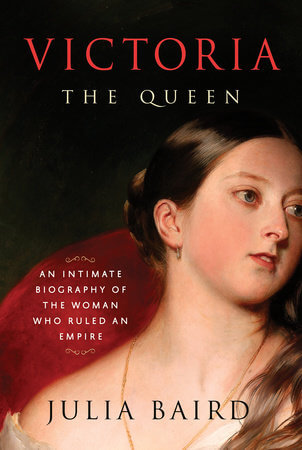
…from Grace Ellis, communications team
Victoria: The Queen by Julia Baird. “One of history’s OG boss ladies. While she ruled over an empire, she was, at her core, deeply human: flawed, vulnerable, and resilient.”
…from Emily Graff, tech talent team
Sapiens: A Brief History of Humankind by Yuval Noah Harari. “All-encompassing book about humankind, from the very beginning to now. What makes us tick on an animalistic level, to how religion, money, and empires have made a cultural world beyond that.”
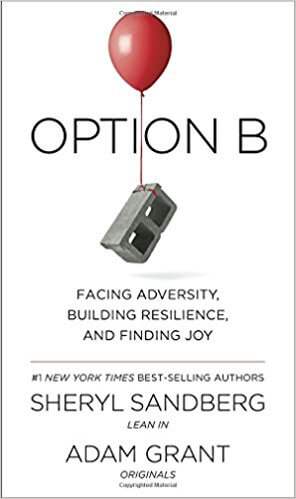 Option B: Facing Adversity, Building Resilience, and Finding Joy by Sheryl Sandberg. “I’ve highlighted almost every other sentence in the entire book. For anyone who has ever faced any disappointment in life, what does it take to move forward?”
Option B: Facing Adversity, Building Resilience, and Finding Joy by Sheryl Sandberg. “I’ve highlighted almost every other sentence in the entire book. For anyone who has ever faced any disappointment in life, what does it take to move forward?”
…from Leila Hay, market development team
The Hitchhiker’s Guide to the Galaxy by Douglas Adams. “With everything that’s going on in the world right now, the message ‘DON’T PANIC’ has never been more important! :-)”
…from Dave Jagoda, engineering team
Burning Chrome by William Gibson. “This is a collection of the first published short stories of William Gibson, who went on to write Neuromancer, the first book of the Sprawl trilogy (and a big influence on The Matrix and its sequels, not to mention countless other things today).”
…from Jeff ‘Airjefe’ Jordan, general partner
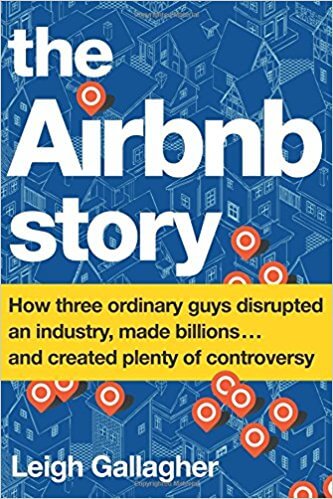 The Airbnb Story: How Three Ordinary Guys Disrupted an Industry, Made Billions … and Created Plenty of Controversy by Leigh Gallagher. “Gallagher’s book gives a very tangible sense of the things that make the service and the company so special.”
The Airbnb Story: How Three Ordinary Guys Disrupted an Industry, Made Billions … and Created Plenty of Controversy by Leigh Gallagher. “Gallagher’s book gives a very tangible sense of the things that make the service and the company so special.”
The Perfect Pass: American Genius and the Reinvention of Football by S.C. Gwynne. “A fascinating look into the offense that’s revolutionized the game of football over the last few decades … along with the two coaches who invented it. Disruption doesn’t only happen in technology!”
…from James Kissell, market development team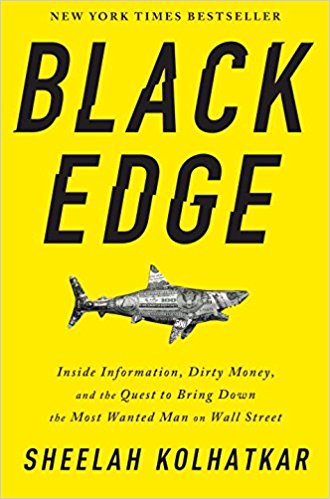
Black Edge: Inside Information, Dirty Money, and the Quest to Bring Down the Most Wanted Man on Wall Street by Sheelah Kolhatkar. “If you like Showtime’s ‘Billions’, you will love this book.”
…from Scott Kupor, managing partner
The End of Theory: Financial Crises, the Failure of Economics, and the Sweep of Human Interaction by Richard Bookstaber. “Discusses the fallacy of traditional economic forecasting models because they fail to account for human behavior, which is inherently unpredictable.”
…from Matt Levy, executive talent team
Astoria: John Jacob Astor and Thomas Jefferson’s Lost Pacific Empire: A Story of Wealth, Ambition, and Survival by Peter Stark. “A history of John Jacob Astor’s ill-fated attempt to establish a fur trading colony at the mouth of the Columbia River on the heels of the Louisiana Purchase. Reads like an adventure novel. It’s a fascinating account of how domestic politics, transcontinental trade, and commercial competition drove westward expansion in the early days of the United States — and how the decisions made by individual leaders in the depths of wilderness determined the success or failure of a global enterprise.”
…from Lorenzo Lopez, firm ops team intern
The Count of Monte Cristo by Alexandre Dumas. “It is a super fun read! There are so many characters that we can sympathize with and so many characters we despise as if it is relevant to our lives.”
…from Jeffrey Low, deal team (bio fund)
How Will You Measure Your Life? by Clay Christensen. “Summer is a great time to re-read an instant classic by great friend and teacher Christensen, the father of disruptive innovation, who shows how the theories that predict success and failure in business can help you realize a fulfilling personal life.” [related: a16z Podcast with the author]
Thinking, Fast and Slow by Daniel Kahneman. “Investing in the next generation of great companies seems like a perfectly rational endeavor. Kahneman takes the reader on a journey through the process of thought itself, along the way pointing out the faults and biases that shape all of our judgement and decisions.”
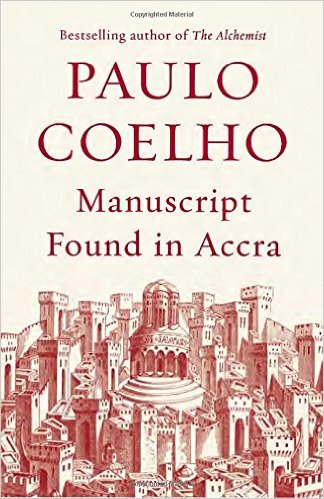 …from Chris Lyons, market development team
…from Chris Lyons, market development team
Manuscript Found in Accra by Paulo Coelho. “This is the perfect book to give you a fresh perspective on both personal and professional aspects of your life as you recharge during the summer.”
…from John O’Farrell, general partner
The Making of the Atomic Bomb by Richard Rhodes. “An awe-inspiring story of how the world’s best scientists put their personal lives on hold for years to help the U.S. build the bomb before the Axis powers could get there. Physics, world history, drama, intrigue — it’s all here.”
Angle of Repose by Wallace Stegner. “An epic novel of the American West by a quintessentially Californian writer, alternating between the 1960s and the 1870s; the two parallel life stories won’t let you go. And the writing is simply beautiful, at times heartbreakingly so.”
…from Nigel Robinson, tech talent team
World Order by Henry Kissinger. “Great for understanding the way different nations have understood and conceived of order across time, and how this kind of cultural ethos has impacted relations between those nations.”
…from Kyle Russell, research team
The New Geography of Jobs by Enrico Moretti. “The future of work is a hot topic, and as we consider the paths we might take to address rising inequality and decreasing economic mobility, it’s important to consider the many factors correlated with those phenomena. One factor that’s been getting more attention lately — see also Tyler Cowen’s The Complacent Class [related: a16z Podcast with the author] — is the relationship between geography and opportunity. Fewer people are moving to where the new good jobs are in the United States than in previous generations, and the result is fewer goods and services in the booming regions and fewer prospects for those living in places that are falling behind.”
…from Laura Shores, market development team
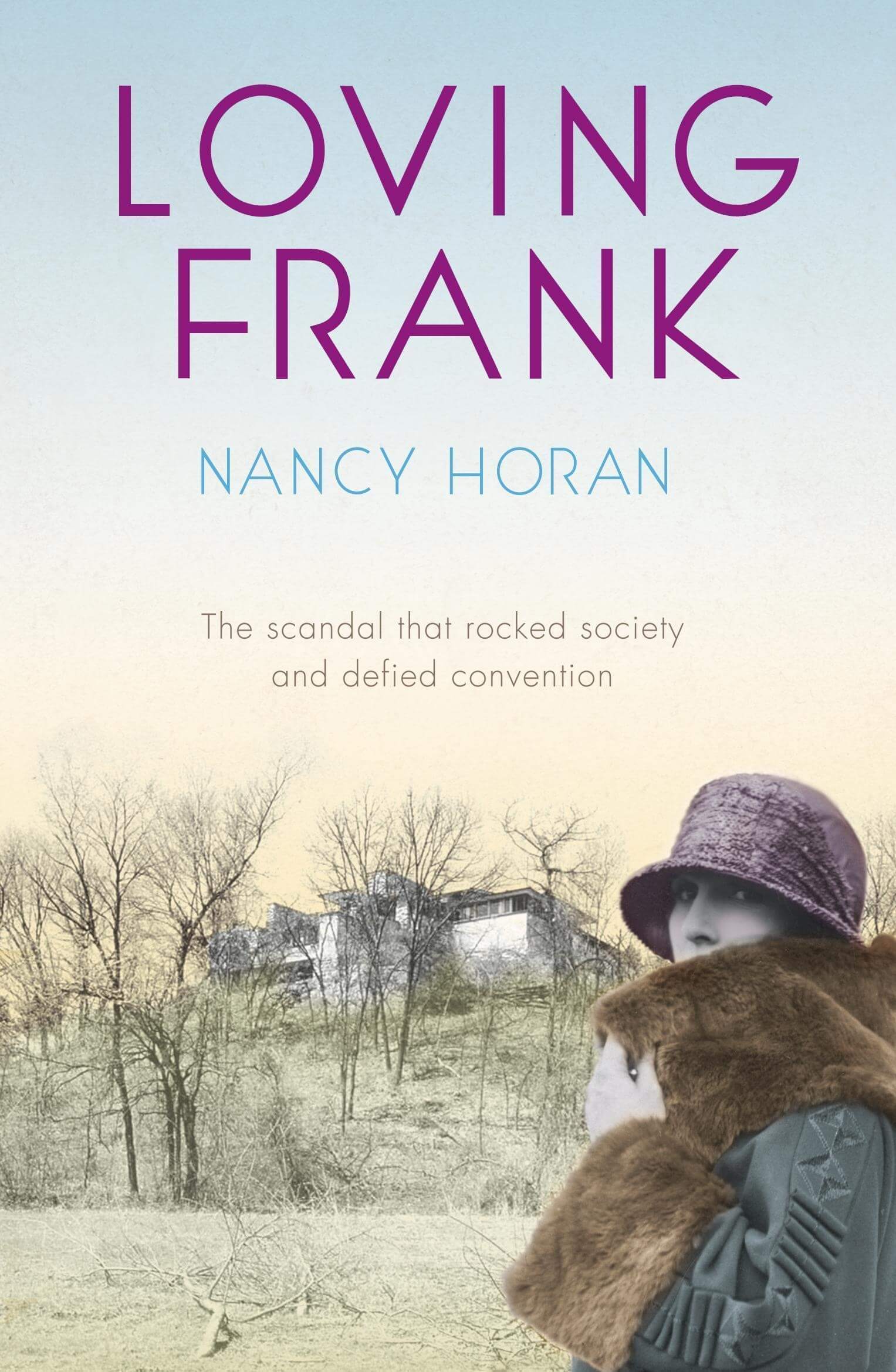 Loving Frank: A Novel by Nancy Horan. “I devoured this while on various planes, trains, and automobiles during our recent trip to Europe. The author tells the love story of Mamah Borthwick Cheney and Frank Lloyd Wright. She captures Cheney’s internal struggle between being a mother and an intellectual, but also sheds new light on a national icon.”
Loving Frank: A Novel by Nancy Horan. “I devoured this while on various planes, trains, and automobiles during our recent trip to Europe. The author tells the love story of Mamah Borthwick Cheney and Frank Lloyd Wright. She captures Cheney’s internal struggle between being a mother and an intellectual, but also sheds new light on a national icon.”
…from Karina Sobieski, HR
Good People: The Only Leadership Decision That Really Matters by Anthony Tjan. “Learn how to become a better judge of people and create more goodness in ourselves, in others, and in our organizations.”
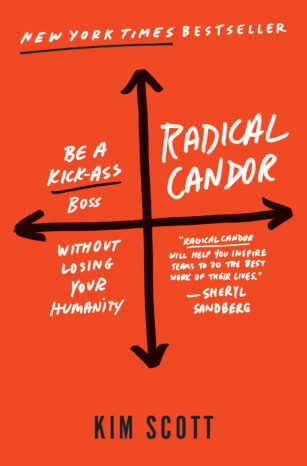 Radical Candor: Be a Kick-Ass Boss Without Losing Your Humanity by Kim Scott. “In her book, Scott captures many of the insights on how to be a great leader.” [related: a16z Podcast with the author]
Radical Candor: Be a Kick-Ass Boss Without Losing Your Humanity by Kim Scott. “In her book, Scott captures many of the insights on how to be a great leader.” [related: a16z Podcast with the author]
…from Matt Spence, policy team
Kissinger: 1923-1968: The Idealist by Niall Ferguson. “Interesting view of Kissinger’s early years and what shaped him. Particularly relevant with the need for serious thinking about national security strategy now.”
Machine, Platform, Crowd by Erik Brynjolfson and Andrew McAfee. “Great description of the forces shaping major economic change, in a thoughtful way. The impact of artificial intelligence on economic growth and job creation is one of the central policy questions we’re facing. This book cuts to the heart of it, and is a quick read.” [related: a16z Podcast with the authors]
Surprised by Joy by C.S. Lewis. “Lewis writes very well about his faith. An interesting reflection on how we think about our role in the world and faith, when we have some time to reflect in the summer.”
…from Hanne Tidnam, editorial team
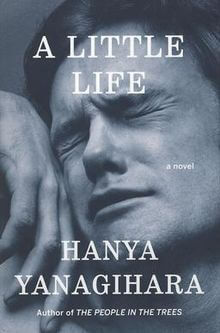 A Little Life by Hanya Yanagihara. “This is a very dark, difficult book to read; too upsetting for many. But, for me, Jude’s harrowing story — and his struggle to not only survive but also to live his life, to value his life — was one of the most profound examples I’ve encountered of what fiction can do and say about the human experience. It’s also a beautifully complex group portrait of the interwoven and complicated friendships of four college men — one that shows much more nuance and depth to male friendships than we normally see in contemporary fiction. But, ultimately, the book is a heartbreaking meditation that holds nothing back in wrestling with how we value our own lives and the lives of those who matter to us — and how we decide what our lives ultimately mean, to ourselves and to each other.”
A Little Life by Hanya Yanagihara. “This is a very dark, difficult book to read; too upsetting for many. But, for me, Jude’s harrowing story — and his struggle to not only survive but also to live his life, to value his life — was one of the most profound examples I’ve encountered of what fiction can do and say about the human experience. It’s also a beautifully complex group portrait of the interwoven and complicated friendships of four college men — one that shows much more nuance and depth to male friendships than we normally see in contemporary fiction. But, ultimately, the book is a heartbreaking meditation that holds nothing back in wrestling with how we value our own lives and the lives of those who matter to us — and how we decide what our lives ultimately mean, to ourselves and to each other.”
…from Daljeet Virdi, engineering team:
High Technology Ventures by Gordon Bell. “While older, this book provides a useful diagnostic for critically examining the dimensions — from the people to the engineering and product to marketing — affecting a new venture. Read excerpts at a time for insights rather than reading it straight through.”
…from Malinka Walaliyadde, deal team (bio fund):
Hood: Trailblazer of the Genomics Age by Luke Timmerman. “A biography of Lee Hood, who developed the first automated DNA sequencing machine and a host of other valuable life sciences tools. Interesting history of the genomic era.”
Understanding the New Statistics: Effect Sizes, Confidence Intervals, and Meta-Analysis by Geoff Cumming. “Provides a helpful understanding of why scientists should use confidence intervals when describing the outcomes of experiments versus only sticking to p-values.”
The Healing of America: A Global Quest For Better, Cheaper, and Fairer Health Care by T.R. Reid. “Describes healthcare systems in developed nations around the world, and what the U.S. could learn from them.”
…from Michael Wee, research team
Leading: Learning from Life and My Years at Manchester United by Alex Ferguson. “I have limited interactions with soccer, apart from a brief stint in youth soccer and occasional World Cup and Olympic viewings (my sports major is basketball;). However, I loved the author’s honest and direct recounting of his time as manager of top professional football (aka soccer) club Manchester United. From his experiences working with driven superstar players such as Beckham and Ronaldo to instilling culture and developing talent, the book gleams with detailed anecdotes. I was inspired by Ferguson’s will to win, his ability to make decisions with imperfect information, and his leader’s quest to never stop building. The epilogue by Silicon Valley VC Michael Moritz linking Ferguson’s leadership tenure with his own experiences working with great Silicon Valley founders also helps tie it all together.”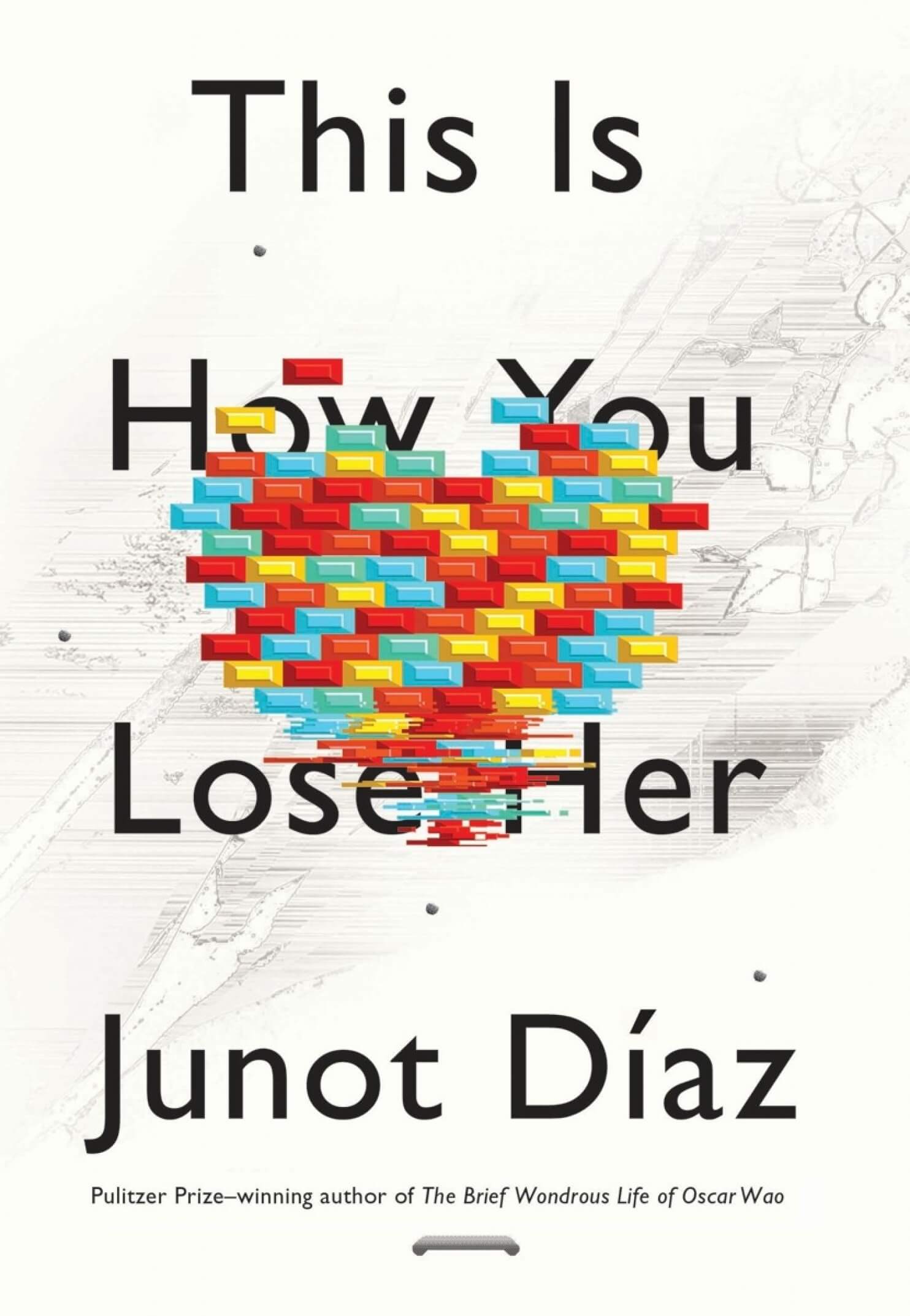
…from Madelyne Xiao, editorial team intern
Gödel, Escher, Bach: An Eternal Golden Braid by Douglas Hofstadter. “Hofstadter’s Pulitzer prize-winning collection of ‘musico-logical’ musings. Drawing on Bach, Lewis Carroll, and a litany of other influences, Hofstadter’s text is full to the brim with puzzles, self-reference, and slick allusions to famous mathematical theorems. Read with pencil and paper at the ready.”
This is How You Lose Her by Junot Díaz. “The third installment of Díaz’s series of books featuring Yunior, a young Dominican-American man, and his romantic misadventures. Díaz’s dialogue is sharp as ever, his blending of Dominican and American cultures seamless. Each chapter is a self-contained short story, so perfect for quick bursts of concentrated reading.”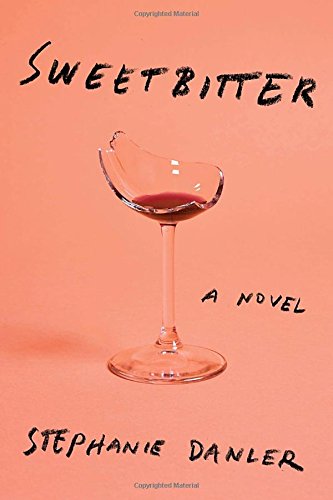
…from Gina Yocom, market development team
Sweetbitter by Stephanie Danler. “Great ‘novel’ written about a 20-something girl who moved to NYC and works at a well-known restaurant establishment there. Hilarious insight into the restaurant biz with some good stories. Fun read!”
- Welcome to the AI + a16z podcast
- Navigating the Impact of Generative AI on Enterprise Security: Insights from Industry Experts
- America Needs More Techno-Optimism
- Regulating Crypto in the Name of National Competitiveness with Emilie Choi
- Securing America’s Future: How Technology Companies and Washington Are Building A Safer World


